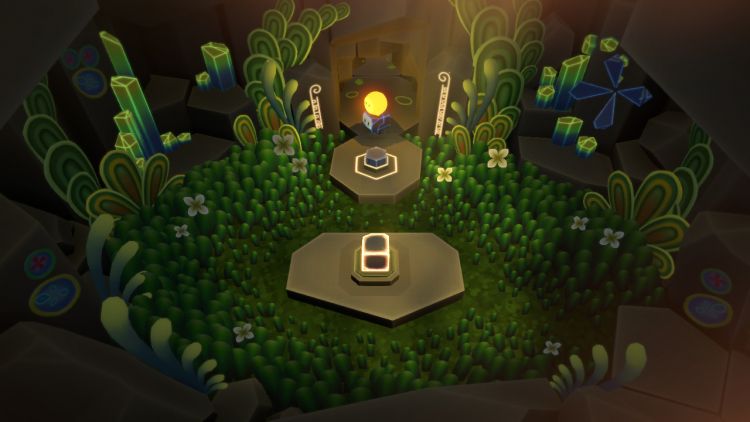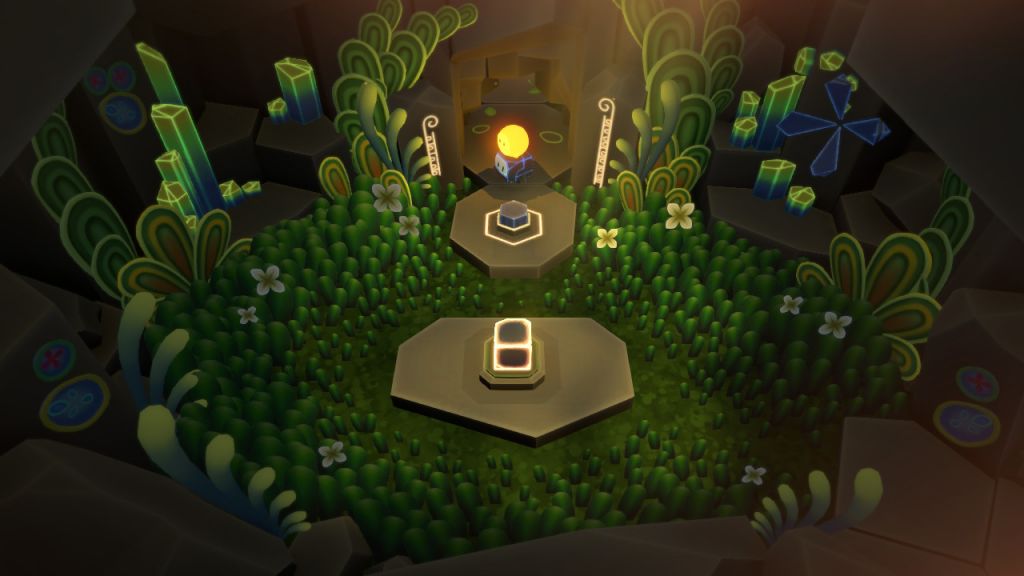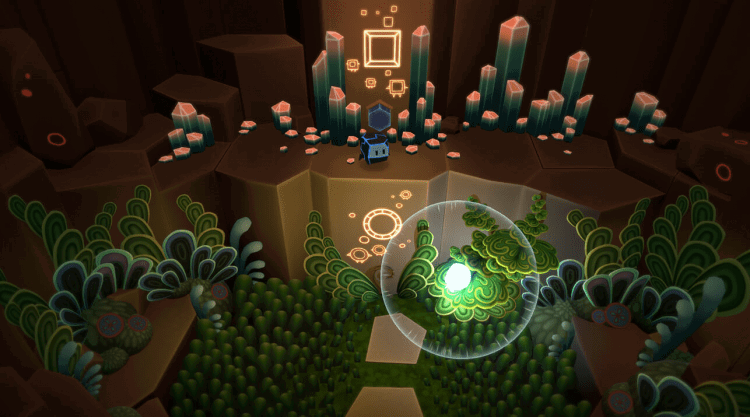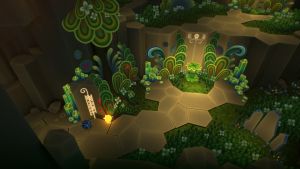Some of the most memorable games of our time have been narrative-driven games. These games tell stories of all kinds: fantasy, historical fiction, science fiction, and so on. They employ visual, audio, and text tools to help tell that story. Still, this isn’t enough for some developers. Some enjoy the challenge of telling a story with no voice or text at all.
This week, I had the pleasure of playing Pode, a Norwegian puzzle-adventure game for the Nintendo Switch. Pode is a story told with no voiceover, no dialogue, and no narration. Players control a fallen star and a magnetic rock, who explore a cavern system together, and bring it back to life after years lying dormant.
Please be warned: This article will include spoilers for Pode.
Most of the story is conveyed through small vignettes, where we see the player characters interact. Bulder, the rock, is trying to help Glo, the star, get back home, climbing a mountain from the inside to get there. On the way, they form a powerful bond, and that bond is critical to completing their task. The characters are so animated, despite being minimalistic, and every little change in their eyes and body is used to convey emotion and thought. In terms of communication, this was enough. The game could have stopped here.
However, lucky for us, there is another story to tell in Pode: the story of the caverns. There are intricate drawings etched into the walls that can be illuminated by Glo’s light. Some of these drawings are instructions, helping players figure out how to play the game, and others are simply atmospheric. Some, however, are less straightforward.

. -. – . .-. / –. .- .-. -.. . -. [ENTER GARDEN, found framing the door out of the first level in the “Garden” world]
These plant-like illustrations appear consistently in almost every path. Yet, there is no obvious payoff. There’s no key to tell you what they are, no indication of what use they might have. It’s easy to dismiss them as beautiful decoration because they are lovely, but if you’re a fan of puzzles and codes, you’ll quickly begin to notice patterns.
These illustrations are, in fact, morse code. Loops represent dots, and lines represent dashes. If you match them against a morse code alphabet, letters, then words begin to appear. These words aren’t critical to understanding the story, but they do enrich it. They’re secret messages, left by earlier people in these caves, for people like you to discover them. One message reads, “thundering strength.” Another says “eternal,” then, “all embracing.”
– . -. -.. . .-. / -.-. .- .-. . [TENDER CARE, found in the “Garden” world]
The simple, yet powerful words in the walls evoke a sort of reverence for the playing field, making it feel like so much more than an imaginary world in a game. It builds a connection and adds to the illusion that the world of Pode is very much alive. This is the kind of attention to detail that takes a game from good to great, and nothing is quite so thrilling as cracking that code for the first time on your own.
It is my belief that these secret, coded messages play into one of the overarching themes of Pode: discovery. The player characters are seeing a sleeping world and watching it wake up again, investigating every corner and unlocking every secret, and the greatest part is that it never gets old. No matter how many times you watch crystals and plants grow in this game, it always has something new and exciting for you. The colorful, vibrant patterns of this underground sanctuary will draw you back in over and over again.
Hats off to you, Henchman & Goon, the developers of Pode. You’ve outdone yourselves in the best possible way.
Pode is now available on the Nintendo Switch. If you want to find out more, check out their website, here.




